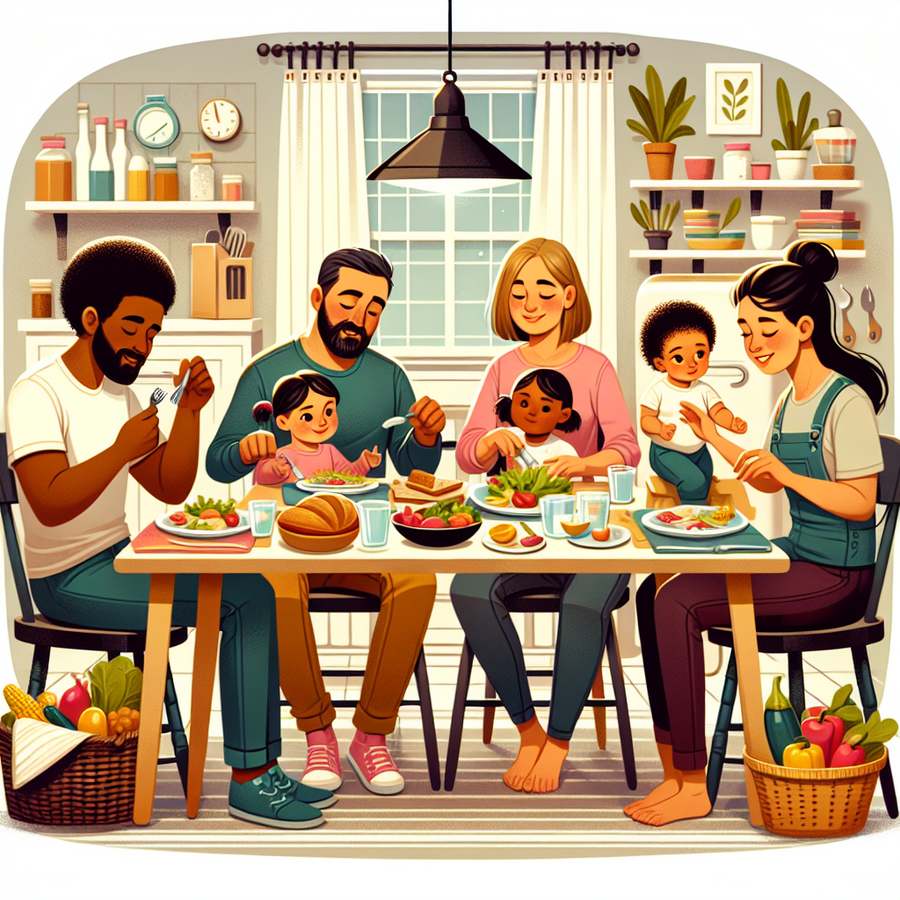The benefits of family meals for toddlers’ social development cannot be overstated, providing a critical foundation for building communication skills, understanding social cues, and developing healthy eating habits. In today’s fast-paced world, family meals serve as a vital anchor that draws families together, offering more than just nutritional sustenance but also nurturing the emotional and social fibers that connect us.
The Importance of Family Meals for Toddlers’ Social Growth
Family meals are about much more than the food on the table. They offer toddlers a unique environment where they can observe, interact, and learn from adults and siblings. During these meals, toddlers witness firsthand the dynamics of social interactions, including listening, turn-taking, and the expressions of gratitude. These experiences are invaluable in shaping toddlers’ understanding of social norms and behaviors.
Beyond the observable behaviors, family meals provide an opportunity for toddlers to develop their language skills. Conversations around the table introduce them to new vocabulary and allow them to practice articulating thoughts and feelings. This verbal engagement is critical for their language development, a key component of social interaction.
Benefits of Family Meals for Toddlers’ Social Development
The benefits of family meals for toddlers’ social development extend beyond basic social etiquette. Regularly participating in family meals helps toddlers feel part of the family unit, fostering a sense of belonging and security. This inclusion is vital for their emotional development and self-esteem. It also lays the groundwork for healthy relationships in the future.
Additionally, family meals can positively impact toddlers’ eating habits. Watching parents and siblings enjoy a variety of foods encourages toddlers to try new foods and develop a more diverse palate. This exposure to different tastes and textures is critical for their nutritional development and can help mitigate picky eating behaviors.
Creating a Positive Family Mealtime Environment
To maximize the benefits of family meals for toddlers’ social development, it’s essential to create a positive mealtime environment. This involves setting aside specific times for meals, free from the distractions of technology, allowing the family to focus on each other. Engaging toddlers in meal preparation and table setting can also enhance their sense of responsibility and belonging.
Families should strive to keep conversations positive and inclusive, ensuring that everyone has a chance to speak and be heard. Discussing day-to-day experiences, telling stories, or planning family activities can enrich mealtime conversations and strengthen bonds. For ideas on making mealtimes more engaging, families can explore creative ways to incorporate vegetables into a toddler’s diet or try out nutritious and delicious smoothie recipes for toddlers.
Ultimately, the benefits of family meals for toddlers’ social development are far-reaching, influencing not just their current behavior but also laying a solid foundation for their future. By prioritizing family meals, parents can significantly impact their toddlers’ growth and development, fostering a sense of belonging, improving communication skills, and promoting healthy eating habits. For more insights on nurturing your toddler’s development, visit our comprehensive guide on the benefits of family meals for toddlers’ social development.













